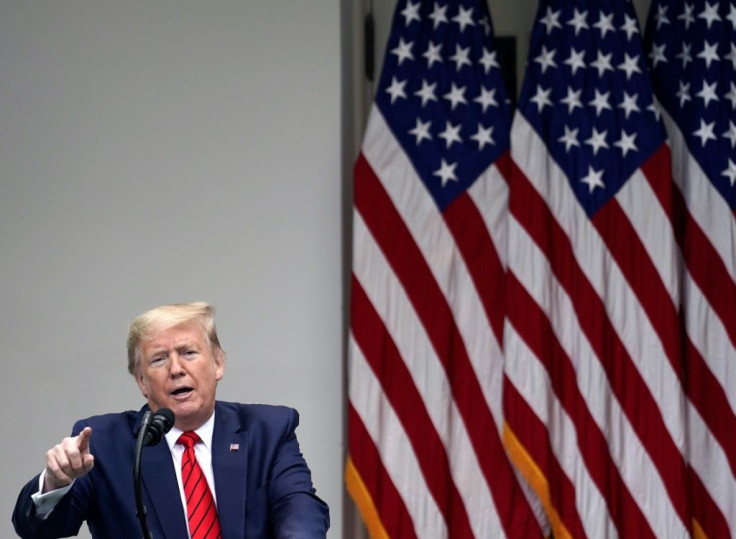Coronavirus Origin: Trump Continues to Blame China, '100 Trade Deals' Can't Cover COVID-19 Effects
The Twitter post from U.S. President Donald Trump on Wednesday evening read, “As I have said for a long time, dealing with China is a very expensive thing to do. We just made a great trade deal, the ink was barely dry, and the world was hit by the plague from China. 100 trade deals wouldn’t make up the difference — and all those innocent lives lost!”
The “Plague from China” is the COVID-19 pandemic that was first observed in Wuhan, China, as a “cluster of cases of pneumonia” by the World Health Organization on last New Year’s Eve. The trade deal was the Phase One deal of Jan. 16 that was signed by Trump and Chinese Vice-Premier Liu He after they shook hands to mark the occasion.
Due to social distancing rules, any future deals with China will not involve any handshake. But, as Trump moves to pin the blame on China and possibly impose economic sanctions, there might be some shaking of the fists between leaders of the two largest economies.
Trump and Labor Secretary Eugene Scalia on Monday ordered a halt on plans to make investments in Chinese companies by the Federal Retirement Thrift Investment Board (FRTIB). Scalia penned a letter that the current plan would place “billions of dollars in retirement savings in risky companies that pose a threat to U.S. national security.”
Scalia’s letter was followed up by one from the Trump administration where officials warned that Chinese companies could face sanctions over “culpable actions of the Chinese government with respect to the global spread of the [coronavirus].”

Following Scalia’s directive, the FRTIB on Wednesday said it would delay its plan to invest about $4.5 billion in Chinese equities.
China is certainly facing anger and economic threats over COVID-19 as evidence mounts over their handling of the “cluster of cases” but according to international legal experts, there is no international law that allows culpability to be assigned to a particular country for a pandemic.
China can be given the benefit of the doubt over any allegations that the coronavirus was deliberately created, but that benefit disappears over its alleged cyber hacking activities. The FBI and Cybersecurity and Infrastructure Security Agency issued a joint statement Wednesday that said they were investigating “the targeting and compromise of U.S. organizations conducting COVID-19-related research by [China] affiliated cyber actors and non-traditional collectors.”
The FBI claims hackers have been caught attempting to “identify and illicitly obtain valuable intellectual property” and public health data related to coronavirus research.
Apparently, the pandemic and cyberhacking are not enough to cut off all trade with the Chinese Communist government. The U.S. Department of Agriculture says that both sides are still making progress on opening market access for American exports and easing tariffs on both sides.
Trump will need to walk the tightrope between American producers of goods, including farmers, and the demands of over 1.4 billion Chinese that are growing as the pandemic ebbs. If he restricts some U.S. exports, the Chinese may slap on retaliatory tariffs that hurt U.S. producers. If he orders companies to stay open as a supply line to China, he risks domestic shortages and further wrath from his political foes if workers become infected by the coronavirus of Chinese origin.
© Copyright IBTimes 2024. All rights reserved.





















